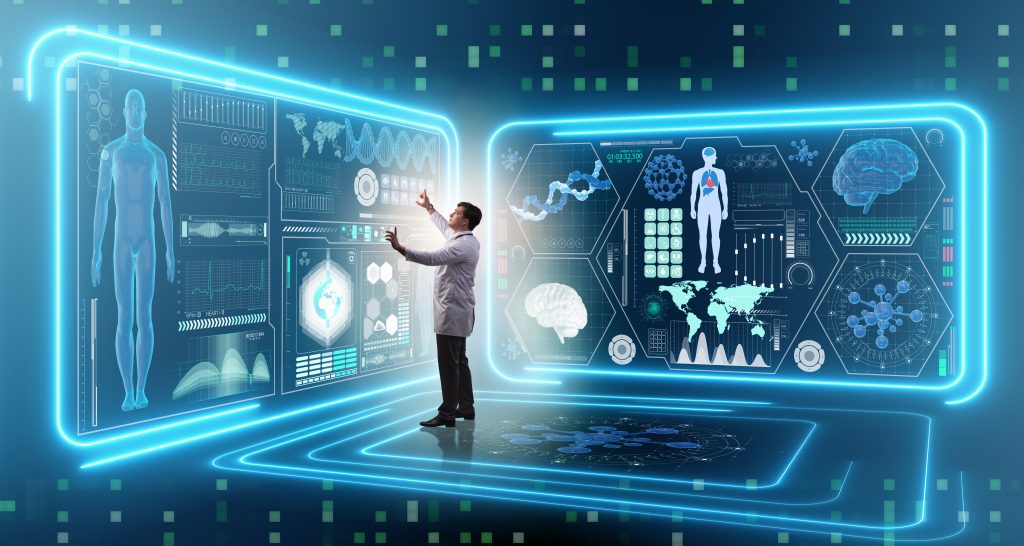
In 1903 Thomas Edison was concerned about the healthcare of his time and stated:
“The doctor of the future will give no medicine, but will interest his patient in the care of the human frame, in diet and in the cause and prevention of disease.”
More than 100 years have passed and we have the same concerns in healthcare delivery with several models attempting to define what makes the “human frame.” Are we closer to achieving improved patient care and interesting our patients in the “care of the human frame, in diet and in the cause and prevention of disease?” How are present doctors addressing the human frame? More importantly, how will present practices impact the future of healthcare? Are we reverting back to a more ancient holistic healing approach originally practiced in India and China more than 5,000 years ago? America’s greatest businessman and inventor brought us light to enhance our visual sense, the ability to record and playback sound to enhance our auditory sense and the motion picture camera to entertain us. He also provided knowledge to sustain life within the environment, but we just have not embraced his invention of caring for the human frame.
When health is defined as a “state of being free from illness or injury,” does this lead to a misbelief that being healthy equates to being free of the perception or illusion of pain? The biomedical model of health focuses on purely biological factors and separates physical matter from the mind and excludes psychological, environmental, and social influences. “First, do no harm”, is not included in the Hippocratic Oath so how does the biomedical model serve to achieve this ethical paradigm essentially obeyed? With an ongoing epidemic of pharmacological dependency and over utilization of surgical procedures, doctors are not facilitating patients’ health, wellness, and quality of life, but are limiting long-term positive outcomes as a result of the biologically dependent model of biomedicine.
The biomedical model leads patients to attain less healing and more inactivity, and does not hold people accountable for their health and wellness when compared to the biopsychosocial approach, but instead addresses chemical processes with other chemicals.
This model assumes that: 1. all illnesses have a single underlying cause, 2. disease is always the single cause, and 3. removal of the disease will result in being healthy. This cycle of care has caused what I refer to as the 5 “N’s”; Negligence , NSAID’s , Narcotics , Noncompliance and Negative outcomes and does not address “care of the human frame.”
The history of treating pain dates back to as early as 5000 BC with the crop formation of the opium poppy for the use to bring about happiness and to cease pain followed by Homer writing in his epic, The Odyssey, of Telemachus a man who used opium to soothe his pain and forget his worries. While some cultures have researched analgesics and encouraged their use, other cultures perceive pain as a fundamental sensation to sustain life. Evolution of the environment in which man exists has changed what comprises the pain experience and has been researched for centuries with the identification of pain mechanisms expanding from the earliest of theories of Aristotle and Hippocrates through the middle-ages as with Descartes. It seems inherent to think beyond the Gate Theory and consider the influence of psychology on the “human frame,” and the environment in which it lives.
How are we addressing “care of the human frame, in diet and the cause and prevention of disease?”
References
- Wade DT, Halligan PW. Do biomedical models of illness make for good healthcare systems? BMJ‚ÄØ: British Medical Journal. 2004;329(7479):1398-1401.
- Booth, Martin. Opium a History. London: Simon & Schuster, 1996. Print
- Meldrum, Marcia. “A History of Pain Management.” Opioids: Past, Present and Future. Journal of the American Medical Association. Web. 08 Nov. 2011.
––– Comments
Kaydee
Commented • July 25, 2019
*Holistic nutritionist not RD.
Duane Franzen Jr
Commented • March 26, 2019
So a dietitian is the doctor of the future. Doctor = sick care Dietitian = health care
Cole
Commented • November 30, 2018
If you're in Southern California -- come on by and we can chat about your article. I have some answers.
Kobyn
Commented • April 15, 2018
Great writeup. Lots of modern day issues like cell phones and WiFi. Lots of ways to be well. Www.massheals.com